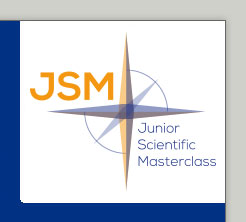Onderzoeksproject aanpassen
Projecten zijn uitsluitend aan te passen door bij het project behorende onderzoekers.
Geef via het uitrolmenu aan welke onderzoeker u bent. Nadat op u de button 'Edit project' heeft geklikt, wordt automatisch een e-mail verstuurd naar het e-mailadres van de onderzoeker die u heeft gespecificeerd.
In deze e-mail staat een link waarmee u het project kunt wijzigen.
Project properties
| Title | Perineal wound healing after short-course radiotherapy followed by chemotherapy and TME - RAPIDO-trial |
|---|---|
| Keywords | locally advanced rectal caner perineal wound healing |
| Researchers |
Prof. dr. G.A.P. Hospers Dr. B. van Etten E.A. Dijkstra P. Nilsson |
| Nature of the research | Descriptive research of a international, randomized study, the RAPIDO-trial |
| Fields of study | surgery oncology |
| Background / introduction |
|---|
| Perineal wound healing is often disturbed in locally advanced rectal cancer patients who underwent APR. As a consequence, delayed or disturbed perineal wound healing has an effect on the quality of life of patients. Previously conducted research demonstrated that delayed wound healing was associated with smoking, hypoalbuminemia, neoadjuvant (chemo)radiotherapy and flap reconstructive1,2. As demonstrated, disturbed perineal wound healing is associated with neoadjuvant chemoradiotherapy. However, the current and most used treatment for locally advanced rectal cancer is long-course chemoradiotherapy followed by surgery. In the RAPIDO-trial, the experimentally treated patients received short-course (5x5 Gy) radiotherapy followed-by chemotherapy and thereafter surgery3. In this trial we demonstrated that this new treatment corresponds to less distant metastasis. In addition, we state that this experimental treatment should be the new standard of care. Therefore it is important to know how perineal wounds heal and if delayed or disturbed perineal wound healing occurs more or less than the currently standard-care treatment. |
| Research question / problem definition |
|---|
| Are there differences in perineal wound healing after an (el)APR in patients treated with the experimental treatment or standard-care treatment in the RAPIDO trial? |
| References |
|---|
|
Holm et al. Extended abdominoperineal resection with gluteus maximus flap reconstruction of the pelvic floor for rectal cancer. Br J Surg 2007;94:232-238 Althumairi et al. Predictors of perineal wound complications and prolonged time to perineal wound healing after abdominoperineal resection. World J Surg 2016;40:1755-1762 Nilsson et al. Short-course radiotherapy followed by neo-adjuvant chemotherapy in locally advanced rectal cancer – the RAPIDO trial. BMC Cancer 2013;13:279 |


